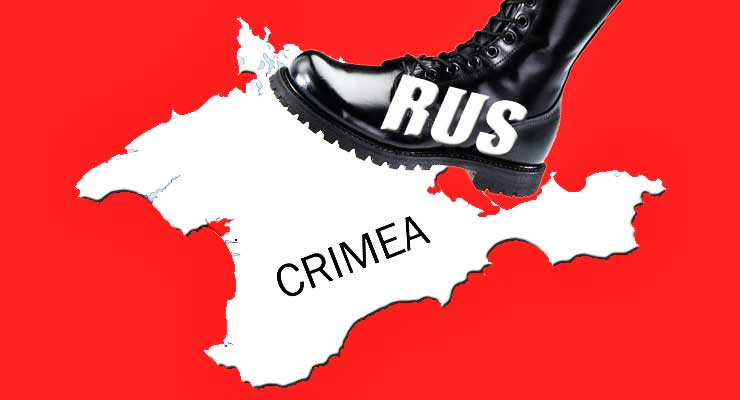
Vladimir Putin quick to return political climate of Crimea repression worse than in Moscow itself
Democracy, elections and voting at Democracy Chronicles
The following is from the Executive Summary of the “Human Rights Abuses in Russian Occupied Crimea” report released by the Atlantic Council in partnership with Freedom House:
In March 2014, Russia forcibly and illegally annexed the Crimean peninsula from the territory of Ukraine. This first land grab on European soil since World War II exposed the Kremlin’s imperialist ambitions and posed a serious threat to the post-Cold War international order.
Since the onset of Russian occupation, Crimea’s residents have faced increasingly grave civic, political, and human rights violations. These include discriminatory policies against Crimea’s ethnic Tatar minority, infringement of property rights, and intimidation of independent voices through selective use of the law and physical force. The Kremlin has sought to suppress reporting of many such abuses by creating a so-called “information ghetto” on the peninsula through a crackdown on local and foreign media. As Western media shifted its attention to the war in Ukraine’s east, the human rights abuses in Crimea have gone underreported.
This report documents the alarming deterioration of human rights in Crimea under Russian occupation. Through a careful chronicling of evidence, Andrii Klymenko, Chief Editor of Black Sea News and Chairman of the Supervisory Board of Maidan of Foreign Affairs, exposes the Kremlin’s repressive and discriminatory policies against three groups: ethnic, religious, or national groups that opposed the annexation, especially members of the indigenous Crimean Tatar community, independent voices seeking to report on the situation in Crimea (journalists, civil society activists, and members of nongovernmental organizations), and holders of Ukrainian passports.
The Crimean Tatars, estimated at three hundred thousand, have endured especially harsh treatment since the annexation. For their refusal to recognize the authority of the de facto government, Tatar leaders have been exiled or banned from public life, their public commemorations prohibited, and their media muzzled. Activists and journalists who simply speak up for human rights have been subjected to torture, intimidated into emigration, and have had their property illegally confiscated. Some have gone missing, with authorities offering little to no evidence that they are investigating the disappearances.
Today, holding a Ukrainian passport as a Crimean resident is tantamount to treason. Crimean residents who hold Ukrainian passports are de facto disenfranchised from exercising their political and civic rights. They are blocked from accessing social services, including public healthcare, owning property, or finding legal employment.
The report is not a complete account of the many human rights violations in Crimea, but it makes clear that physical harassment, criminal prosecution, and forced emigration of potentially “disloyal” groups is part and parcel of Russia’s control strategy for the peninsula. By documenting a small portion of such abuses, Klymenko provides a window into the “information ghetto” of the peninsula and the everyday lives of its residents in the year since Russian occupation.
© 2015 The Atlantic Council of the United States and Freedom House.
Publication design: April Brady. Cover is a treatment of a photo of pro-Russia forces in Perevalne, Crimea.
This report is written and published in accordance with the Atlantic Council Policy on Intellectual Independence. The author is solely responsible for its analysis and recommendations. The Atlantic Council, Freedom House, and their funders do not determine, nor do they necessarily endorse or advocate for, any of this report’s conclusions.
Leave a Reply